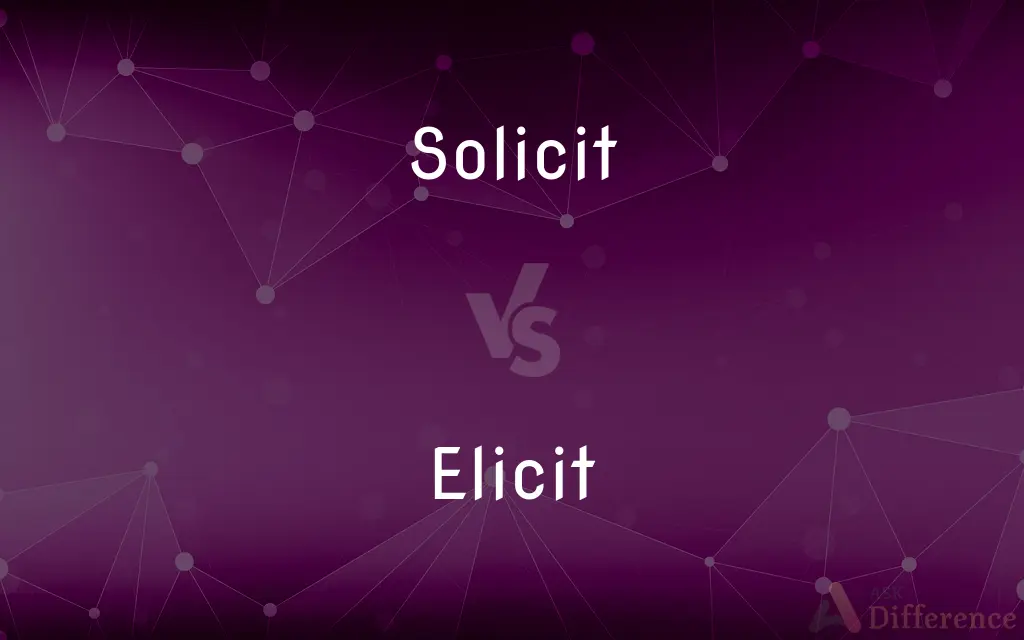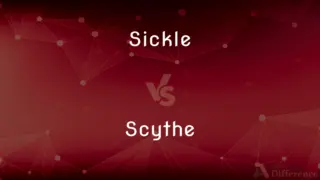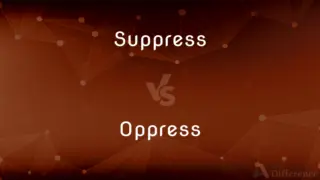Solicit vs. Elicit — What's the Difference?
By Tayyaba Rehman & Fiza Rafique — Updated on March 12, 2024
Solicit involves seeking something, like information or support, from someone, while elicit is about drawing out a response or information, often subtly.

Difference Between Solicit and Elicit
Table of Contents
ADVERTISEMENT
Key Differences
Solicit is primarily about actively asking for something, such as help, information, or donations, from others. It implies a direct request or appeal to someone for something they possess. For instance, charities often solicit donations from the public to support their causes. Whereas elicit involves drawing out a response, answer, or fact from someone or something, often through indirect means or skillful questioning. For example, a good interviewer knows how to elicit honest responses from their subjects without making them feel pressured.
While solicitation is generally an overt action with a clear intention, elicitations can be more nuanced, requiring insight or understanding to draw out the desired information or reaction. A marketer might solicit feedback through a survey, whereas a story or advertisement might be designed to elicit emotions or reactions from its audience.
In legal or formal contexts, solicit can carry specific connotations, such as soliciting for a criminal act, which is an offense in itself. Elicit, on the other hand, does not typically carry legal connotations but is more associated with psychological or informational contexts, like eliciting information during an investigation.
The method of interaction also differs: solicitation often involves direct communication, where the solicitor's intentions are clear to the recipient. Elicitation may involve more subtle forms of interaction, where the elicitor seeks to bring something out more indirectly, possibly without the source fully realizing the intention.
In terms of outcomes, solicitation aims for a tangible result or action, like a donation or assistance, and its success is measured by the response to the direct request. Elicitation focuses on intangible outcomes, such as feelings, thoughts, or undisclosed facts, with success often depending on the skill of the person trying to elicit the response.
ADVERTISEMENT
Comparison Chart
Definition
To ask for something directly, often openly and boldly
To draw out a response or information, subtly or indirectly
Contexts of Use
Fundraising, marketing, legal
Psychology, investigations, interviews
Connotations
Can be neutral or negative, depending on context
Generally neutral, focused on the method of obtaining information
Communication Style
Direct and clear
Subtle and indirect
Intended Outcomes
Tangible actions or responses
Intangible responses, such as emotions or thoughts
Compare with Definitions
Solicit
To request something from someone, especially support or money.
Non-profits solicit donations to fund their programs.
Elicit
To draw out a response, answer, or fact from someone in a subtle way.
A skilled interviewer can elicit the truth from a reluctant witness.
Solicit
To ask for contributions or orders, especially in a persistent manner.
Salespeople often solicit prospects door-to-door.
Elicit
To bring out or forth a reaction or response.
The novel’s plot elicits strong emotions from the readers.
Solicit
In a legal context, to seek to incite or induce someone to commit an unlawful act.
Soliciting someone to commit a crime is punishable by law.
Elicit
To evoke or draw out (a reaction, answer, or fact) from someone.
The teacher uses questions to elicit students’ opinions.
Solicit
Make a solicitation or petition for something desired;
She is too shy to solicit
Elicit
To obtain information or a response through careful questioning or observation.
Therapists often elicit feelings and memories from their clients during sessions.
Solicit
To seek to obtain something from someone by making a direct appeal.
The company solicits feedback from its customers through surveys.
Elicit
To derive by logical reasoning.
Detectives elicit the suspect’s motive through careful analysis of the facts.
Solicit
To approach someone with a request or plea.
Volunteers are solicited to help with the community cleanup.
Elicit
To call forth, draw out, or provoke (a response or reaction, for example)
"Interrogators were reportedly frustrated by their inability to elicit useful information from him" (Jane Mayer).
Solicit
To seek to obtain by persuasion, entreaty, or formal application
A candidate who solicited votes among the factory workers.
Elicit
To evoke, educe (emotions, feelings, responses, etc.); to generate, obtain, or provoke as a response or answer.
Solicit
To petition persistently; importune
Solicited the neighbors for donations.
Elicit
To draw out, bring out, bring forth (something latent); to obtain information from someone or something.
Fred wished to elicit the time of the meeting from Jane.
Did you elicit a response?
Solicit
To commit the criminal offense of enticing or inciting (another) to commit an illegal act.
Elicit
To use logic to arrive at truth; to derive by reason
Solicit
To make solicitation or petition for something desired.
Elicit
(obsolete) Elicited; drawn out; made real; open; evident.
Solicit
To persistently endeavor to obtain an object, or bring about an event.
To solicit alms, or a favour
Elicit
Elicited; drawn out; made real; open; evident.
Solicit
To woo; to court.
Elicit
To draw out or entice forth; to bring to light; to bring out against the will; to deduce by reason or argument; as, to elicit truth by discussion.
Solicit
To make a petition.
Elicit
Call forth (emotions, feelings, and responses);
Arouse pity
Raise a smile
Evoke sympathy
Solicit
(archaic) To disturb or trouble; to harass.
Elicit
Deduce (a principle) or construe (a meaning);
We drew out some interesting linguistic data from the native informant
Solicit
To urge the claims of; to plead; to act as solicitor for or with reference to.
Elicit
Derive by reason;
Elicit a solution
Solicit
To disturb; to disquiet.
Solicit
(archaic) solicitation
Solicit
To ask from with earnestness; to make petition to; to apply to for obtaining something; as, to solicit person for alms.
Did I solicit theeFrom darkness to promote me?
Solicit
To endeavor to obtain; to seek; to plead for; as, to solicit an office; to solicit a favor.
I view my crime, but kindle at the view,Repent old pleasures, and solicit new.
Solicit
To awake or excite to action; to rouse desire in; to summon; to appeal to; to invite.
That fruit . . . solicited her longing eye.
Sounds and some tangible qualities solicit their proper senses, and force an entrance to the mind.
Solicit
To urge the claims of; to plead; to act as solicitor for or with reference to.
ShouldMy brother henceforth study to forgetThe vow that he hath made thee, I would everSolicit thy deserts.
Solicit
Make a solicitation or entreaty for something; request urgently or persistently;
Henry IV solicited the Pope for a divorce
My neighbor keeps soliciting money for different charities
Solicit
Make amorous advances towards;
John is courting Mary
Solicit
Incite, move, or persuade to some act of lawlessness or insubordination;
He was accused of soliciting his colleagues to destroy the documents
Common Curiosities
What are common methods used to elicit responses?
Methods include skillful questioning, creating a comfortable environment for open discussion, and using psychological techniques.
What does it mean to solicit someone?
To solicit someone means to ask them directly for something, such as help, information, or contributions.
Is eliciting always done with questions?
No, eliciting can also be achieved through observations, interactions, or creating situations that naturally bring out the desired response.
Can solicitation be illegal?
Yes, in certain contexts, such as soliciting someone to commit a crime, it can be considered illegal.
How is eliciting information different from soliciting information?
Eliciting information involves drawing out the information subtly or indirectly, while soliciting information involves directly asking for it.
Can eliciting be considered manipulative?
While it can be seen as manipulative in some contexts, it often depends on the intention behind it and how it's conducted.
Why might someone choose to solicit rather than elicit?
Soliciting is more direct and often faster, making it suitable for clear, straightforward requests where the intention is openly declared.
Does eliciting require special skills?
Yes, it often requires skills in psychology, observation, and communication to effectively elicit information.
What is the main goal of solicitation in marketing?
The main goal is to encourage a direct action, such as a purchase, subscription, or feedback.
How important is body language in eliciting information?
Body language is very important as it can help build rapport and trust, making it easier to elicit information.
How do professionals like therapists or detectives use elicitation?
They use elicitation to uncover deeper truths, emotions, or facts that might not be readily shared through direct questioning.
In what situations is elicitation preferred over solicitation?
Elicitation is preferred in sensitive situations, investigations, or when seeking honest, unguarded responses.
Is it possible to solicit without speaking?
Yes, solicitation can be done through written communication, gestures, or other non-verbal methods.
Can anyone learn to elicit information effectively?
With practice and study of human behavior and communication techniques, it's possible to improve one's ability to elicit information.
Are there ethical concerns associated with elicitation?
Yes, ethical concerns can arise, especially regarding the respect for privacy and consent of the individual from whom information is being elicited.
Share Your Discovery

Previous Comparison
Sickle vs. Scythe
Next Comparison
Suppress vs. OppressAuthor Spotlight
Written by
Tayyaba RehmanTayyaba Rehman is a distinguished writer, currently serving as a primary contributor to askdifference.com. As a researcher in semantics and etymology, Tayyaba's passion for the complexity of languages and their distinctions has found a perfect home on the platform. Tayyaba delves into the intricacies of language, distinguishing between commonly confused words and phrases, thereby providing clarity for readers worldwide.
Co-written by
Fiza RafiqueFiza Rafique is a skilled content writer at AskDifference.com, where she meticulously refines and enhances written pieces. Drawing from her vast editorial expertise, Fiza ensures clarity, accuracy, and precision in every article. Passionate about language, she continually seeks to elevate the quality of content for readers worldwide.
















































